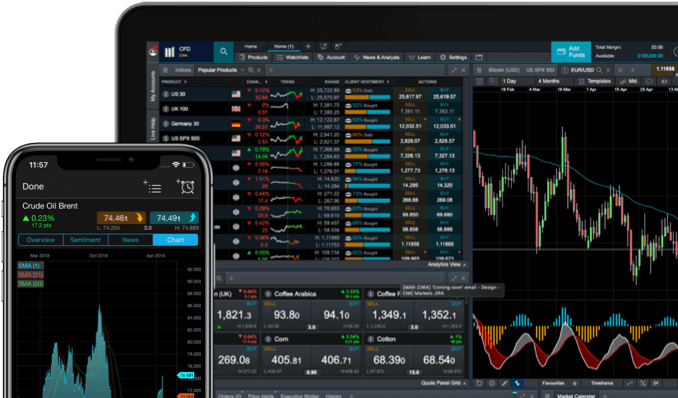Now let’s look at taking on a similar position via a spread bet. The spread betting price quote on ABC is slightly wider than the market, so we will use 298.5p to sell, 301p to buy. To have the same exposure as buying 500 shares our investor needs to buy £5 per point. If you look at the maths here it makes perfect sense: £5 x 301= £1505. So the position value of the shares using a spread bet is equivalent to £1505 worth of shares. If the value of the shares increases or decreases then the spread bet will follow suit.
There's no commission or stamp duty to pay and in addition, because spread bets trade on margin, our investor does not need to tie up all her capital. It is important to remember, however, that the loss you could make on a bet may exceed the amount of margin that you used to enter into that bet. This is a feature of leverage (margin trading) and it means that your losses are magnified and you can lose more than your deposit. Let’s assume the margin deposit for this particular share is 10% of the value of the position. This means that, in this case, £150.50 would be allocated from her spread betting account to open a spread bet worth £1505 on company ABC.
Once again, we use our time machine to jump forward a month and the share price has risen 10% so the price of the spread bet instrument is now 328.5/331. Our investor decides to take her profits, closing the spread bet by selling at 328.5. Her profit in points is 328.5 – 301 = 27.5, and of course her stake was £5 per point which nets her a profit of £5 x 27.5 = £137.50.
There would of course have been some charges incurred along the way as well with this spread bet. Because she is trading on margin she is effectively 'borrowing' money from the spread bet provider, so there is a daily financing charge applied to her spread bet. This rate is usually based on SONIA (Sterling Overnight Index Average) plus a percentage, which will vary from broker to broker. Let’s assume our investor’s broker charges SONIA + 2.5% and SONIA is currently 0.45%. This means her financing will cost 2.95% if held for a year, but this is broken down to a daily rate so the daily cost for this spread bet is around 0.0081%. On a position value of £1505, that equates to about 12p per day. Over the month that would mean financing charges of around £3.65 would have been deducted from our investor's account, leaving her with an overall profit of £133.85. That’s still more than she would have made buying the shares through a traditional stockbroker, plus our investor did not have all of her £1500 tied up in the shares – she had ample funds left over to take advantage of other opportunities if she wanted to.

